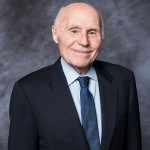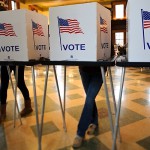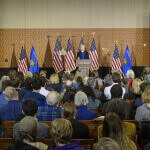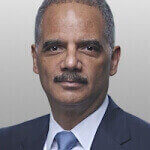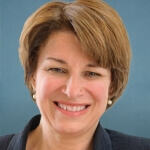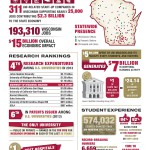Tag Politics & public affairs
Kohl’s $1.5 million gift to fund La Follette School research
A $1.5 million gift from Herb Kohl Philanthropies will support faculty research at the University of Wisconsin–Madison’s Robert M. La Follette School of Public Affairs. Read More
UW-Madison professor reflects on decades of attending party conventions
UW-Madison political science professor Byron E. Shafer, who has attended political party conventions since 1980, expects some interesting developments at this year's events. Read More
Wisconsin in the spotlight
Democratic Presidential candidate Sen. Bernie Sanders speaks to a crowd of about 4,400 at the Kohl Center on April 3, two days before the Wisconsin presidential primary. Read More
Primary interest
Democratic presidential candidate Hillary Clinton speaks at an invitation-only campaign event attended by over 200 people inside the Gordon Dining and Event Center on March 28. Read More
Primary election experts from UW–Madison
Numerous experts from the University of Wisconsin–Madison are available to speak with reporters covering the April 5 primary and upcoming presidential election. Read More
Hess, McAvoy to receive Outstanding Book Award
The American Educational Research Association is recognizing the School of Education's Diana Hess and Paula McAvoy for “The Political Classroom: Evidence and Ethics in Democratic Education.” Read More
UW-Madison to host discussion on bipartisan poverty proposals
Arthur C. Brooks, a prominent conservative voice in matters of economic and social policy, will deliver the Institute for Research on Poverty’s New Perspectives in Social Policy lecture. Read More
2015 Gladfelter Awards for Government Innovation announced
The award recognizes nonelected municipal, county, state, or federal employees who, through their careers or through a specific innovation, have helped solve a problem for Wisconsin residents. Read More
Poll compares opinions of public and scholars on foreign policy
How differently does the public view issues of foreign policy from scholars whose job it is to study the subject? Is one group more liberal or conservative than the other? And why do people think what they think? Read More

